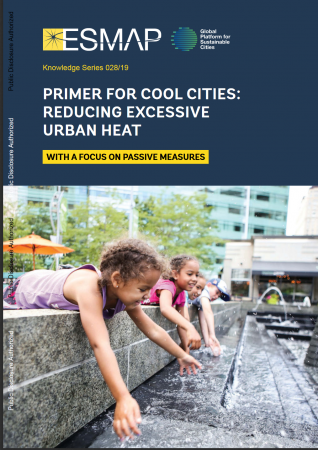 GCCA Executive Director Kurt Shickman is the lead author on a new World Bank report — Primer for Cool Cities: Reducing Excessive Urban Heat with a Focus on Passive Measures — that details the many ways cities can transform into cooler, more habitable places in the face of rising temperatures and provides detailed, practical, actionable guidance and examples for implementers, policy-makers and planners tasked with mitigating urban heat.
GCCA Executive Director Kurt Shickman is the lead author on a new World Bank report — Primer for Cool Cities: Reducing Excessive Urban Heat with a Focus on Passive Measures — that details the many ways cities can transform into cooler, more habitable places in the face of rising temperatures and provides detailed, practical, actionable guidance and examples for implementers, policy-makers and planners tasked with mitigating urban heat.
The need to protect populations from extreme heat is one of the key resiliency and sustainability challenges of the 21st Century. The combined trends of urbanization in developing countries, global climate change, and rapid growth in urban temperatures mean that billions of people need to find ways to access cooling solutions to live and thrive. The negative effects of excess heat on urban systems are significant and impact nearly every aspect of urban life, with a particular burden placed on poor, marginalized communities.
That said, successfully implementing measures to cool urban air temperatures will lead to many benefits, including for health, well-being, productivity, air quality and energy systems. These urban-cooling solutions can be deployed in the short-term to help mitigate the risk of rising urban air temperatures and help transform cities into more equitable, healthy, and prosperous places to live.
